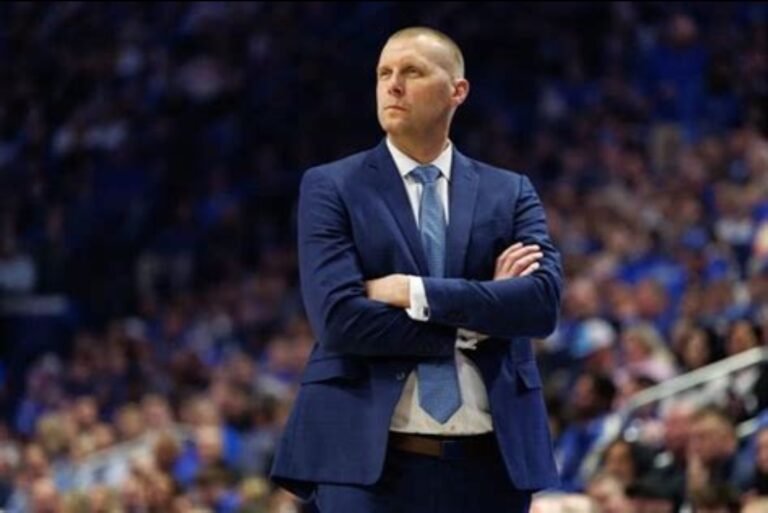In a recent matchup between the Kentucky Wildcats and the Alabama Crimson Tide, tensions escalated due to controversial officiating, culminating in a peculiar incident where a referee halted the game to stare down Kentucky’s head coach, Mark Pope.
This unusual event has sparked discussions about the quality and impartiality of officiating in college basketball.
The game, held on February 22, 2025, saw the Wildcats initially taking the lead. However, as the first half progressed, Alabama gained momentum, leading to a seven-point advantage at halftime. Throughout the game, Coach Pope vocally expressed his dissatisfaction with several calls made by the referees. His frustration reached a peak when, during a stoppage in play, an official paused the game specifically to fixate on Pope, an action that is rarely, if ever, seen in collegiate sports. This moment was captured and widely shared on social media platforms, amplifying the controversy surrounding the officiating.
A significant point of contention was the foul trouble faced by key Kentucky players. Two starters accumulated four fouls each, limiting their effectiveness on the court. Most notably, Otega Oweh, Kentucky’s leading scorer who had consistently posted double figures in previous games, fouled out after contributing only two points and without a single free-throw attempt. Given Oweh’s aggressive playing style, the absence of free-throw opportunities raised eyebrows among fans and analysts alike.
In the post-game press conference, when questioned about Alabama’s defensive strategy against Oweh, Coach Pope responded with a hint of sarcasm, stating, “Are you baiting me into an answer here? Alabama is a great defensive team.” This response suggests his underlying dissatisfaction with the officiating but also reflects his awareness of the potential repercussions of openly criticizing game officials.
This incident is not an isolated one for Coach Pope this season. Earlier in the year, following a narrow loss to Georgia, Pope and his coaching staff undertook a comprehensive review of officiating patterns in their initial Southeastern Conference (SEC) games. This initiative was driven by a series of questionable calls and a noticeable disparity in free-throw attempts that seemed to disadvantage the Wildcats. Pope’s approach emphasizes a commitment to ensuring fair play and holding officials accountable for their decisions on the court.
The broader implications of this event have reignited debates about the consistency and transparency of officiating in college basketball. Critics argue that such incidents undermine the integrity of the sport and can significantly influence the outcome of closely contested games. Advocates for officiating reform suggest implementing measures such as increased training for referees, the use of advanced technology to assist in decision-making, and establishing clearer channels for coaches to voice concerns without fear of retribution.
In conclusion, the unusual episode involving Coach Mark Pope and the referee during the Kentucky vs. Alabama game has cast a spotlight on the critical role of officiating in college basketball. As the season progresses, it remains to be seen how the NCAA and the SEC will address these concerns to maintain the sport’s integrity and ensure a level playing field for all teams involved.



